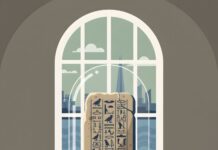The Swedish government spent eight million kronor trying to answer a question nobody was really asking: “What makes someone Swedish?”
Well, according to historian Lars Trägårdh’s newly unveiled list of 100 cultural items, the answer is a mix of a 16th-century bible and a flat-pack furniture store.
This cultural canon, which purports to define the nation’s identity, has instead become a perfect example of how bureaucrats can turn heritage into a political tool.
The list has some expected entries, like Pippi Longstocking and the Nobel Prize, but it also includes things like paternity leave and an 18th-century heating stove.
Yet who's missing from this official celebration? ABBA, arguably Sweden's most famous global export.
The official reasoning stems from a quirky 50-year rule that leaves out anything after 1975. Never mind that ABBA actually formed in 1972.
When Politics Dresses Up as Cultural Preservation
This wasn’t just a random project.
Sweden’s ruling coalition had promised this very canon in their election manifesto. The Swedish Democrats, a party known for its strong anti-immigration views, were the biggest drivers behind it. That backing alone reveals the list’s true purpose. This isn’t really about celebrating Swedish culture; it feels more about policing it.
Take that 1975 cutoff date. It conveniently leaves out the cultural contributions from about one in five Swedes who were born abroad, as most immigrants arrived after that arbitrary line in the sand. The religious items on the list also almost exclusively favour Christian entries, quietly ignoring Sweden’s significant and growing Muslim community.
The Messy Business of Cultural Gatekeeping
Suddenly, a small group of people on a cultural committee gets to decide what counts as “authentically” Swedish.
That’s a lot of power to give to anyone, especially those who might see heritage as ammunition for culture wars. It’s no surprise that respected institutions like the Swedish Academy and representatives of the indigenous Sámi people have already condemned the list for being exclusionary. Their criticism is important.
Iranian-born Swedish author Shora Esmailian warned that state-imposed lists like this won’t help build “a welcoming and equal society.” And she’s right. Culture isn’t built in meeting rooms; it grows organically from our lived experiences, not from government decrees.
Earlier this month, the indigenous people of Tornedalen reported they were completely left out of the project, calling it a form of “continued oppression.” When a project meant to represent people ends up silencing them, you know it’s gone wrong.
And then there’s that 50-year rule. ABBA formed in 1972, won Eurovision in 1974, and released their iconic self-titled album in 1975. By any reasonable look at the timeline, they should qualify. Leaving them out feels less like an accident and more like a deliberate choice.
Government Lists Miss the Point Entirely
Culture Minister Parisa Liljestrand defended the canon, calling it a “living and useful tool for education, community and inclusion.”
However such words feel empty when you look at the list itself. Choosing IKEA while excluding ABBA suggests the committee was more interested in sending a political message than reflecting culture accurately.
Prime Minister Ulf Kristersson claimed that understanding Swedish culture helps newcomers integrate. But it begs the question: whose version of Swedish culture? The committee’s clean, pre-1975 version of Sweden looks nothing like the diverse, multicultural society most Swedes live in today.
As one Swedish parliamentarian noted, ABBA is "one of the absolutely most important symbols of Swedish culture" around the world. To exclude them pretty much undermines the whole project's credibility from the get-go.
Sweden deserves better than a heritage list that serves a political agenda instead of celebrating its culture. Real Swedish identity isn’t found in a government office; it’s in the vibrant, sometimes messy reality of modern Sweden. It’s ABBA’s disco anthems and Bergman’s films, immigrant traditions alongside ancient customs, mosques, and churches.
The real shame here isn’t that ABBA got left off a bureaucrat’s list. It’s that Sweden spent £650,000 to create division where there should be celebration. Swedish culture doesn’t need government approval to be great. It just needs the freedom to keep flourishing.
Keep up with Daily Euro Times for more updates!
Read also:
Adapting to New Realities: Sweden’s Military Strategy In Flux
A Nuclear Divorce: Sweden and Russia
Pay Your Respects: A Swedish Nuclear Graveyard






